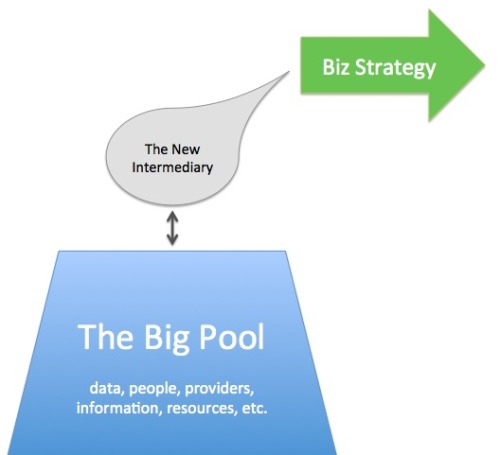When Your Market Says to Pivot
March 14, 2013 2 Comments
 I’m all for a well-thought-out go-to-market strategy. But I’ve often advised consultants and other small businesses to leave your directional map at about 80% – and let the market inform you about the remaining 20%.
I’m all for a well-thought-out go-to-market strategy. But I’ve often advised consultants and other small businesses to leave your directional map at about 80% – and let the market inform you about the remaining 20%.
Why? Because you WILL pivot, to some extent – and your customers will show you where and how.
A recent example from my experience – I’ve been doing Clarity Therapy sessions for a variety of individuals and companies for a couple of years now. Typically, these are one-day intensive sessions, with a few months of minor follow-up.
I did not, however, anticipate performing any kind of ongoing business coaching. I saw Clarity Therapy as an event, not a long-term process. Until clients starting asking for more. A lot more. And a wealth of helpful lessons from past experience began to come to the surface.
Turns out that being an outside voice giving perspective on overall business structure, specific creative offerings, client account management, and staffing (plus identifying resources via networking) is a much bigger need than I realized.
The most interesting revelation of all: how lonely it is to be a small business owner or solo consultant. I mean, I knew that, right? I AM one. But it didn’t really occur to me how important it is for us to have an outlet, a peer, a mentor, a friend – who can come alongside for the long-term and help get a business to a new level. There are short-term and one-shot needs, but clients are saying to also think about the deeper, longer haul. Bonus: that approach actually suits me quite well. I prefer those kind of business relationships.
Truth is, there’s a lot of stuff we just can’t say to customers, employees, colleagues, even family members. It’s frustrating, and the lack of a healthy outlet and fresh perspective clogs our mind and heart.
So, I now find myself offering business coaching for people and businesses seeking to grow and needing outside advice and encouragement. It’s not really a change of direction, just a natural extension that I didn’t anticipate.
How about you? How have your customers caused you to pivot? I’ve seen a number of my social media people evolve over time and it’s pretty fascinating. What’s your story?
Image: FreeDigitalPhotos.net









Recent Comments